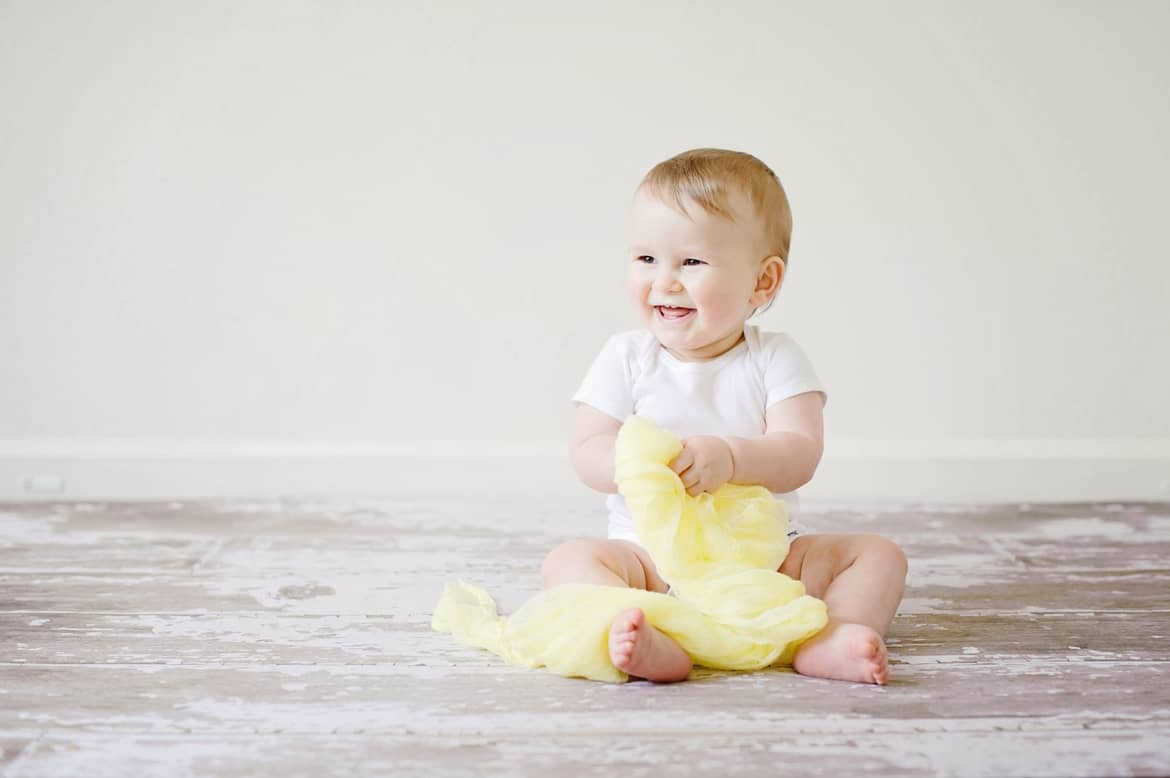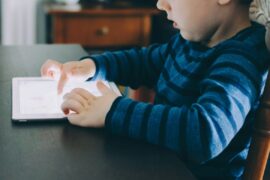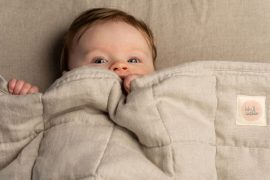By Elizabeth Pantley
Bedtime is challenging enough without the battle you have to fight to get your little one’s teeth brushed! Your child might resist so adamantly that you finally give up. You might figure that baby teeth just fall out anyway, so it’s not a big deal, right? Actually, it is a big deal.
Even though baby teeth aren’t permanent, they do have a permanent effect on your little one’s health and development.
The minute that first tooth pops out – whether your baby is four months old or 14 months old – it’s important that you brush your baby’s teeth.
Some dentists even recommend cleaning the gums before any teeth erupt. Here’s why baby teeth are so important:
- Baby teeth act as placeholders that ensure proper spacing and alignment of permanent teeth as they come in.
- Baby teeth are an important part of language development, ensuring proper jaw and tongue development and movements for speaking.
- Healthy baby teeth enable a child to eat the healthful foods so necessary for development.
- Proper daily care of baby teeth prevents the possibility of childhood tooth decay or periodontal disease.
- Improper care of baby teeth could cause early loss of those teeth and problems with the permanent teeth that replace them.
- Baby teeth are often not completely replaced by permanent teeth until age 13 or 14, that’s a long time for your baby to use the set that he has now!
TOOTH BRUSHING TIPS
Given the importance of baby teeth, brushing them every day is vital to your child’s health. To make the task less stressful – maybe even pleasant – try some of the following ideas:
- Make tooth brushing a part of your routine. Do it at the same time every night, such as right after putting on pajamas, and as part of your morning routine, such as right after you get dressed.
- Use a small brush. While using a bigger brush may seem more efficient, it’s the equivalent of sticking a hairbrush in your mouth: big and overwhelming!
Instead, opt for the special tiny brushes made especially for babies and toddlers. Choose a soft-bristled brush to prevent hurting your baby’s gums.
- If even a baby toothbrush seems to be too much (such as for a very small baby, or a baby who sprouts teeth very early) simply use a piece of gauze or a wet cloth to wipe the teeth and gums. You can also purchase a baby finger brush (it looks like a finger off a rubber glove with bristles).
- Use only a tiny dot of toothpaste. Too much can be unpleasant (and unhealthy) for your baby, and a small bit does the job.
- Use a tooth cleanser made especially for babies. Such products are gentle on baby teeth, pleasant tasting, non-foaming, and safe to swallow. Products that contain fluoride should not be swallowed since they can cause white spots on teeth, and your child won’t learn to “spit” until much later. (Well…I mean learn to spit toothpaste out until much later.)
- Experiment with different types of toothbrushes and toothpastes. Search out colourful, musical toothbrushes, or those with playful designs. Try an electric or battery-powered brush made especially for children; these do a great job of cleaning teeth, and your little one may enjoy the buzzing sound and tingly feeling. If you have several brushes, let your little one choose which brush to use each time.











